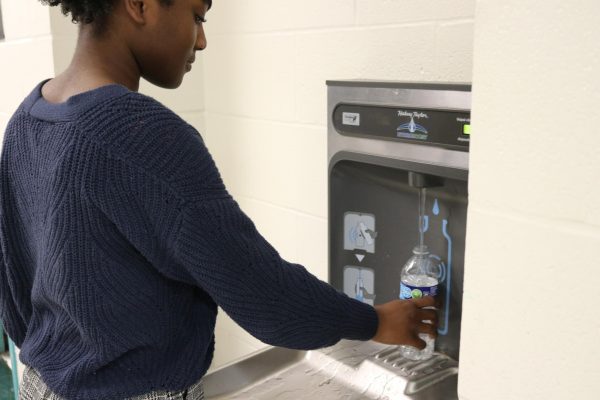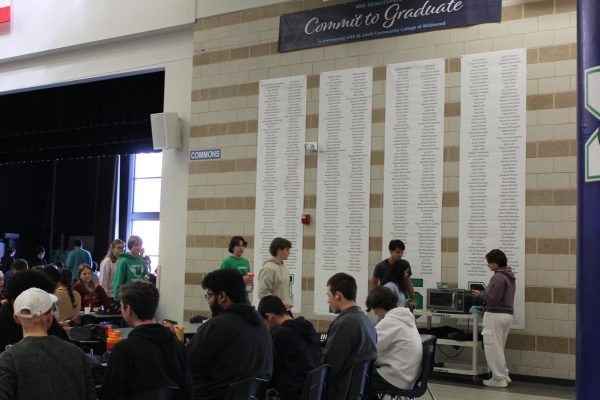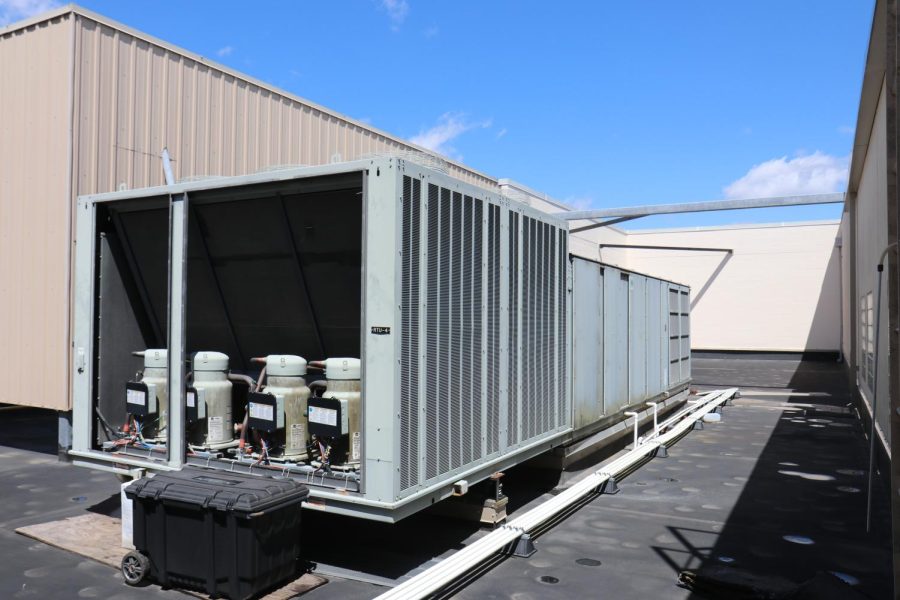Clean Air Challenge Comes at a Price
Media by Willem Hummel
Bill Branson, RSD maintenance and grounds coordinator, said air filtration and ventilation could always be better, but it just would not be realistic financially for much more improvement to what RSD already has in place because as a higher percentage of fresh air is introduced into the school, the more energy it takes to heat or cool the air.
The Environmental Protection Agency (EPA) released a challenge for buildings on March 22, 2022, including schools, to improve air quality.
The plan, released March 22, is called the Clean Air In Buildings Challenge and it encourages businesses, homes, and schools to improve fresh air flow, ventilation and air filtration in order to combat the spread of COVID-19 in these enclosed environments.
The main way the EPA recommends to do this is to get higher quality air filters; heating, ventilation, and air conditioning (HVAC) systems; and use more fresh air cycled in from the outdoors.
Nour Elbeshbeshy, sophomore, said the plan might have been more effective if it had been released at the beginning of the pandemic rather than years after the onset.
“Right now people are at a state where they are feeling apathetic about [the pandemic] overall, so people don’t really care. Nobody is going to really feel encouraged to do it,” Elbeshbeshy said.
However, Elbeshbeshy said it would not be a bad thing to encourage schools to improve their air quality. She said that if COVID ramps up again because of new variants like Omicron VA2 approaching from Europe, it would only help.
“People aren’t going to wear their masks anyways. If a mandate was put back, people are not going to wear their masks properly, they’re not going to wear them at all,” Elbeshbeshy said.
Madeline Gwinner, senior and politics club member, said the timing of the policy’s implementation in relation to the timeline of the pandemic was effective.
“The mask mandate is gone, so maybe it is a good idea to put it in now just as a safeguard to have,” Gwinner said.
Dr. Jason Newland, M.D., M.Ed., professor of Pediatrics, Infectious Diseases at Washington University, said improved air ventilation systems in schools help to limit the spread of COVID.
The virus is largely airborne, and the more times that air cycles in a room, the more likely that virus will be flushed out, Dr. Newland said.
“Adding anything that increases the quality of air overall is a good thing,” Dr. Newland said.
Dr. Newland said the more air filtration a school has, the more similar that space gets to being outside. As it becomes more similar to the outdoors, the safer the environment becomes.
“If you look at outdoor settings, you just don’t see any transmission because there is so much ventilation,” Dr. Newland said. “There’s air and wind, so it just dissipates.”
However good air ventilation may be, Dr. Newland said it is still important to pay attention to what is happening with the pandemic and case numbers.
“We always need to be pushing for vaccination because vaccination is what has helped the most serious of infections.” Dr Newland said.
He also said that Omicron VA2 has been in Europe and is coming to America. While it appears to be more infectious than its previous variants, it’s also presumed to be less deadly.
“Not that it hasn’t been killing a lot of people. Let’s be clear, Omicron has been killing over 1200 Americans a day,” Newland said.
However, Dr. Newland also said the Clean Air in Buildings Challenge can have a positive impact on people with other breathing problems such as asthma or allergies.
“Even those of us who have normal healthy lungs, we’ll probably feel better too with better quality of air,” Dr. Newland said.
This process of getting better air tends to get fairly pricey as the quality of air circulation, ventilation and filtration is improved, Bill Branson, RSD maintenance and grounds coordinator, said.
“The more fresh air that is introduced, the more energy it takes to condition that air before it enters the school,” Branson said.
Despite the extra money it requires to increase fresh air in RSD schools, Branson said RSD facilities increased from 15-20 percent of fresh air to 30 percent in order to combat COVID and its spread.
In preparation for the return of students last year, all the air filters were also changed, he said. Right now RSD predominantly uses air filters with a Minimum Efficiency Reporting Value (MERV) of eight and nine, which usually cost $4 for smaller filters to $25 for larger filters..
A higher-quality MERV 11 filter costs $18 on average, and a MERV 17 filter will cost significantly more, Branson said.
The higher the MERV, the more effectively it will be able to filter particles out of the air including COVID, according to One Hour Heating and Air Conditioning.
One of the EPA’s recommendations was to open doors and windows for schools and businesses in order to allow fresh air to enter, but Branson said this would cause more harm than good.
“We discourage opening doors and windows because of the safety and security aspect. Plus, open windows and doors provide an unobstructed path for insects, spiders, birds and other critters, which then can present a pest control problem,” Branson said.
Branson said air filtration and ventilation could always be better, but it just would not be realistic financially for much more improvement to what RSD already has in place because as a higher percentage of fresh air is introduced into the school, the more energy it takes to heat or cool the air.
“We do our best to be responsible with taxpayer money while providing as comfortable an environment as possible,” Branson said.
Your donation will support the student journalists of Marquette High School. Your contribution will allow us to purchase equipment and cover our annual website hosting costs. You may become a PATRON by making a donation at one of these levels: White/$30, Green/$50, Blue/$100. Patron names will be published in the print newsmagazine, on the website and once per quarter on our social media accounts.

Willem Hummel, Senior is a News Editor for the Marquette Messenger. This is his third year on staff, he has been involved in the Track Team, and Cross...







